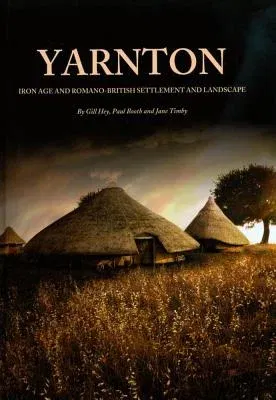Gill Hey
(Author)Yarnton: Iron Age and Romano-British Settlement and Landscape: Results of Excavations 1990-98Hardcover, 17 November 2011

Qty
1
Turbo
Ships in 2 - 3 days
In Stock
Free Delivery
Cash on Delivery
15 Days
Free Returns
Secure Checkout

Part of Series
Oxford Archaeology Monograph
Print Length
655 pages
Language
English
Publisher
Oxford Archaeological Unit
Date Published
17 Nov 2011
ISBN-10
1905905211
ISBN-13
9781905905218
Description
Product Details
Authors:
Book Format:
Hardcover
Country of Origin:
GB
Date Published:
17 November 2011
Dimensions:
29.72 x
21.84 x
3.81 cm
ISBN-10:
1905905211
ISBN-13:
9781905905218
Language:
English
Pages:
655
Publisher:
Series:
Weight:
2766.91 gm